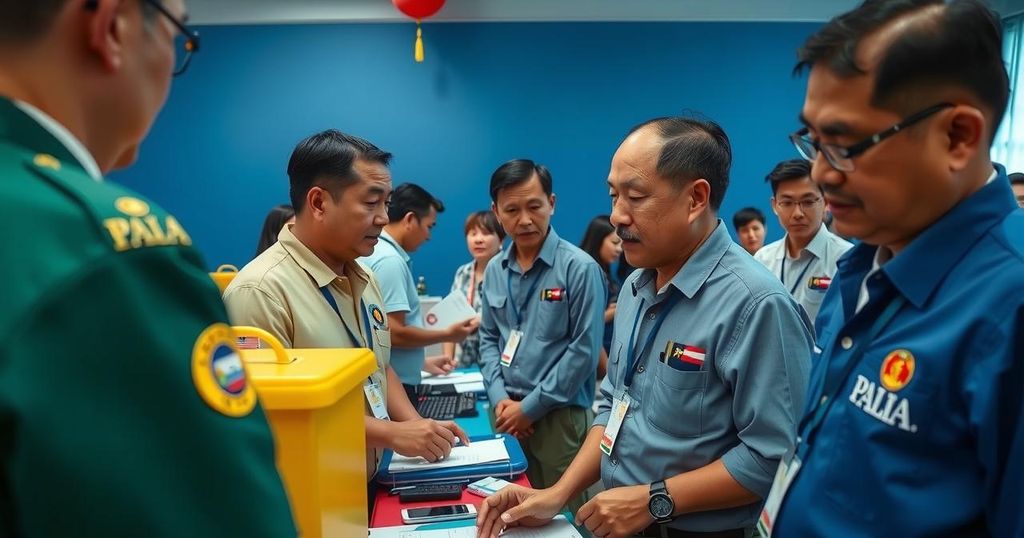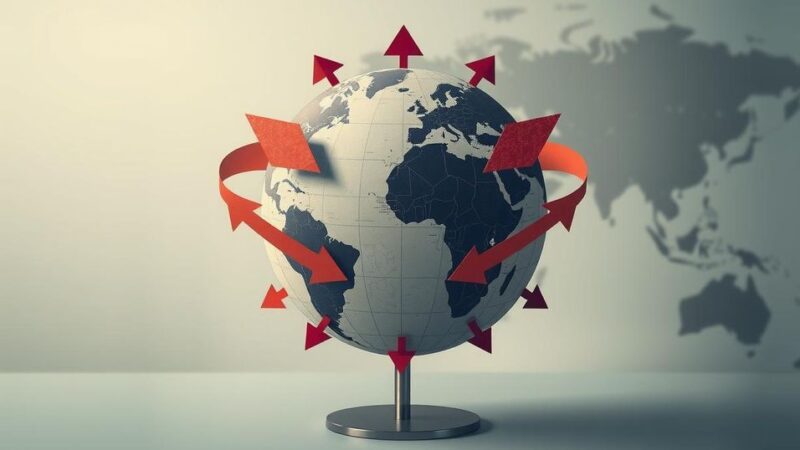On November 5, Palau elects its new leadership, reflecting deeper geopolitical stakes between the U.S. and China. President Surangel Whipps Jr. champions U.S. ties while former President Tommy Remengesau Jr. seeks to increase cooperation with China, focusing on economic concerns heightened by external pressures. The election’s outcome may influence Palau’s strategic stance in the Pacific amidst rising tensions with China.
Amidst the strategic contest between the United States and China, the Pacific nation of Palau prepares for its elections on November 5, coinciding with the U.S. elections. With a modest population of approximately 18,000, Palau remains one of the few countries maintaining diplomatic ties with Taiwan rather than China. The imminent elections have potential implications extending beyond Palau’s borders, reflecting the intricate dynamics of U.S.-China relations in the region. The election landscape features a contest between President Surangel Whipps Jr., a fervent supporter of U.S. engagement, and former President Tommy Esang Remengesau Jr., who advocates for increased collaboration with China on climate issues. The citizens of Palau are primarily focused on tackling economic challenges, notably the rising cost of living fueled by heavy reliance on imported goods, predominantly from the United States. Dr. Michael Green, CEO of the United States Studies Centre, highlights Palau’s significant geopolitical importance, asserting that these smaller nations have become vital chess pieces in the larger context of strategic competition. Palau’s historical ties to the United States provide a backdrop to the current political climate. The Compact of Free Association allows for substantial U.S. financial assistance and military oversight in exchange for defense responsibilities. Under President Whipps, there has been a concerted effort to bolster military presence, with Whipps noting, “We see what’s happening around our region… it’s a benefit for Palau to have that special relationship with the United States.” Conversely, Remengesau accuses Whipps of fostering a conflict of interest with the family business securing U.S. defense contracts, emphasizing that equitable opportunities should prevail for local companies. Despite their familial ties, the rivalry is significant, particularly as both candidates propose differing visions for Palau’s future in the context of regional geopolitics. While Whipps supports continued U.S. military involvement to counter China’s influence, Remengesau insists that national security must be viewed through the lens of climate change and community engagement. Furthermore, economic measures such as a newly introduced goods and services tax have spurred debate, with critics asserting that it exacerbates financial strain on households already grappling with economic pressures exacerbated by dwindling tourism, heavily reliant on Chinese visitors prior to COVID-19. Although Palau’s official relations with China are limited, economic interactions persist, raising mixed sentiments among citizens. Some advocate for broadening ties with China to stimulate tourism, echoing sentiments like those of newspaper publisher Moses Uludong, who stated, “How come the Chinese can do business here and we can’t do business there?” In contrast, mainstream perspectives still favor maintaining the longstanding allegiance with Taiwan, thanks to various supports offered by Taiwan to promote development. As the elections draw near, Voters remain cognizant of the balancing act necessary to sustain favorable ties while navigating external pressures from both superpowers. Analysts emphasize that Palau’s ability to resist Chinese influence hinges on effective governance, remarking, “It is more about how well governed the country [is]… and how accountable its leaders are.” What transpires in this small Pacific nation on Election Day will undoubtedly be a focal point in the broader U.S.-China rivalry.
Palau, a small island nation in the Pacific, has found itself at the crossroads of significant geopolitical interests, particularly between the United States and China. The Compact of Free Association with the U.S., established during its independence in 1994, has allowed for continued economic assistance and military oversight, ensuring Washington’s defense control over Palau. This unique geopolitical position makes Palau strategically important in the context of rising tensions in the Pacific, especially regarding China’s expanding influence. As the electoral process unfolds, the implications extend beyond domestic governance, reflecting broader international relations and security dynamics in the region.
The upcoming elections in Palau represent not only a pivotal moment for the nation’s domestic policies but also a critical juncture in its geopolitical positioning amid U.S.-China rivalries. With economic challenges at the forefront of voter concerns, the contrasting visions of President Whipps and former President Remengesau reveal deeper implications for national security and external relations. As Palau navigates its path forward, the leadership it chooses will play a crucial role in shaping its future alliances and engagement with the larger international community.
Original Source: www.theguardian.com






